On the first day of the 2024 Budget debates in parliament, 29 Members of Parliament (MPs) spoke of their support of the Budget.
Deputy Prime Minister and Minister for Finance Lawrence Wong delivered his 2024 Budget speech on Feb. 16, 2024.
Pritam Singh
 Photo via MCI/YouTube
Photo via MCI/YouTube
Workers' Party (WP) chief Pritam Singh said WP supports the budget, but they "agree to disagree" with the People's Action Party (PAP) on certain issues.
Singh laid out five points regarding the Workers' Party's stance on the budget, adding that his fellow party members will elaborate on each topic.
Liang Eng Hwa
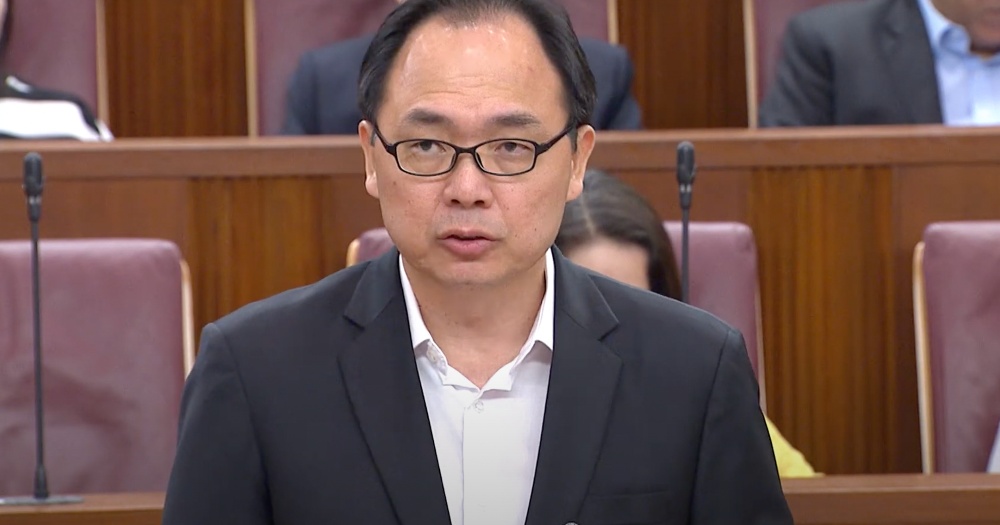 Photo via MCI/YouTube
Photo via MCI/YouTube
Bukit Panjang SMC MP Liang Eng Hwa characterised the budget as one that is “forward moving and progressing”.
“Even though there are other measures and tools to help mitigate rising costs, nothing beats having more direct payoffs and assistance from the government.”
Foo Mee Har

West Coast GRC MP Foo Mee Har noted the wide range of support measures that include “generous assistance” to meet the cost of living pressures.
However, Foo stated that the government must be careful when it comes to giving handouts as people may grow reliant on them over time, which may become challenging to "wean them off "expectation of such support in the future.
Hazel Poa
 Photo via MCI/YouTube
Photo via MCI/YouTube
Progress Singapore Party (PSP) Non-Constituency MP (NCMP) Hazel Poa suggested some “bolder steps” that the government could take to help Singaporeans cope with the rising cost of living.
While "short-term" support measures such as the assurance package are “always welcome”, she said that these aren’t long-term solutions that address the root causes of the rising cost of living.
She proposed two main measures to combat this problem: cut costs and raise wages.
Joan Pereira
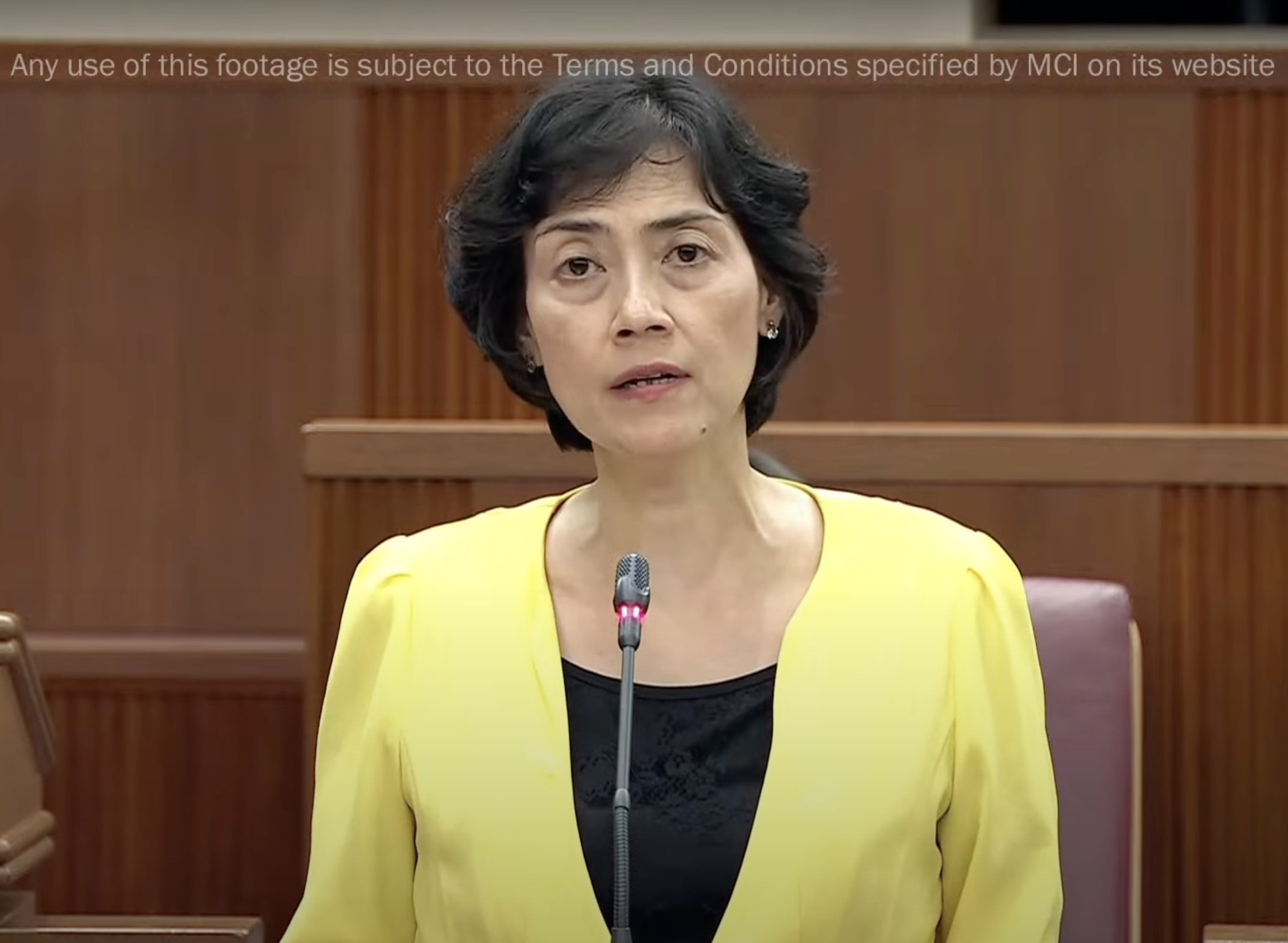 Image via MCI
Image via MCI
Tanjong Pagar GRC MP Joan Pereira welcomed the decision to provide greater assistance for the lower income group and bigger households with elderly and children.
However, she suggested that the government pegged future batches of CDC vouchers to the number of persons per household.
She appealed for more middle to long-term support for the "sandwich generation" who have to support children and parents and plan for their own retirement, especially considering longer lifespans.
Raj Thomas
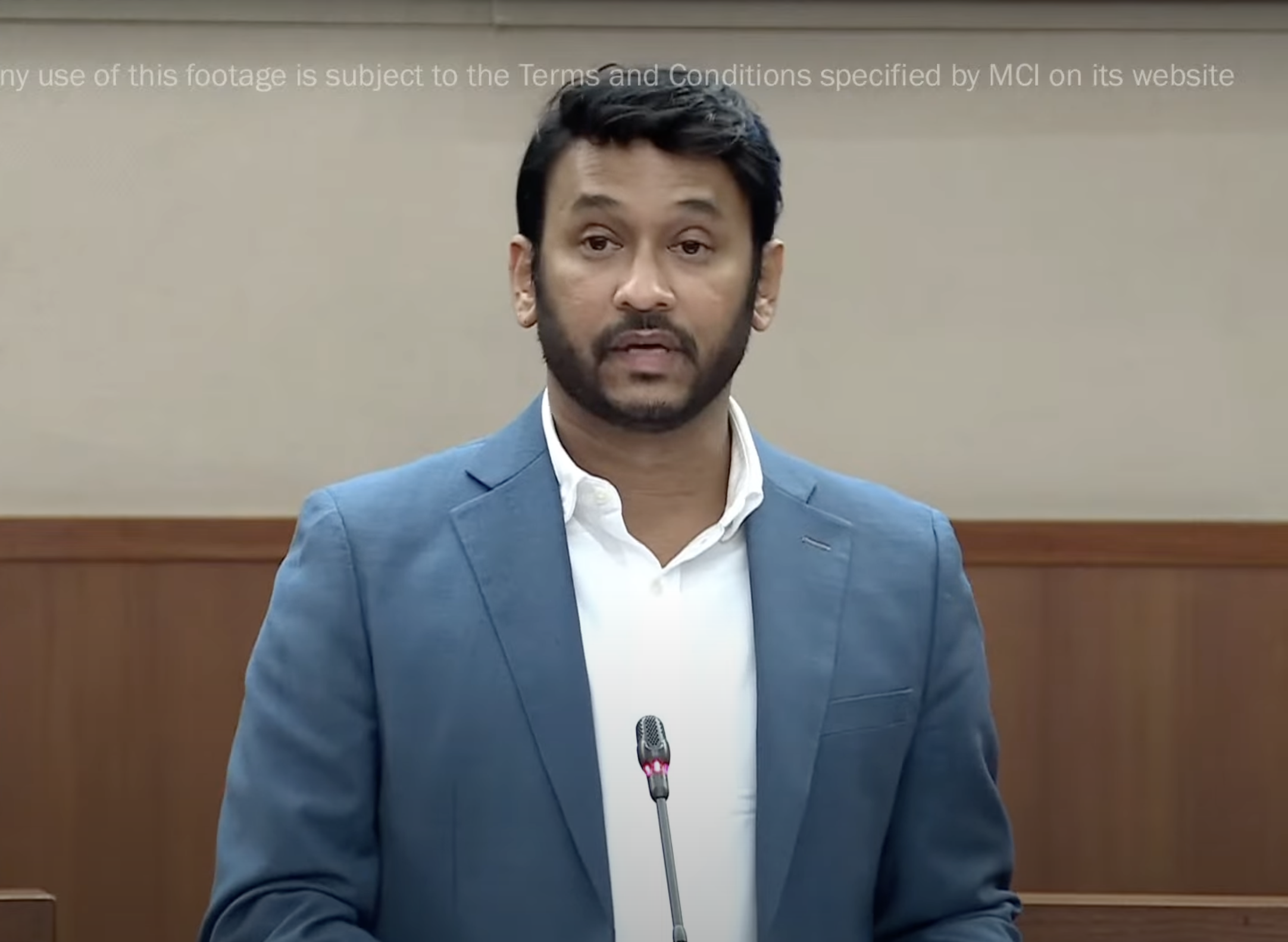 Image via MCI
Image via MCI
Nominated Member of Parliament (NMP) Raj Thomas talked about work culture and the uplifting of wages of the workers in Singapore.
Raj stated that Singapore should promote a work culture that focuses on working hard and living well, where a “holistic Singapore worker” is one who “does his best to work hard and is able to live well”.
Raj also called on the government and the tripartite partners to consider setting a long-term objective where the average wage of workers in each Progressive Wage Model sector is on par with the average wage of fresh university graduates in Singapore.
Louis Chua
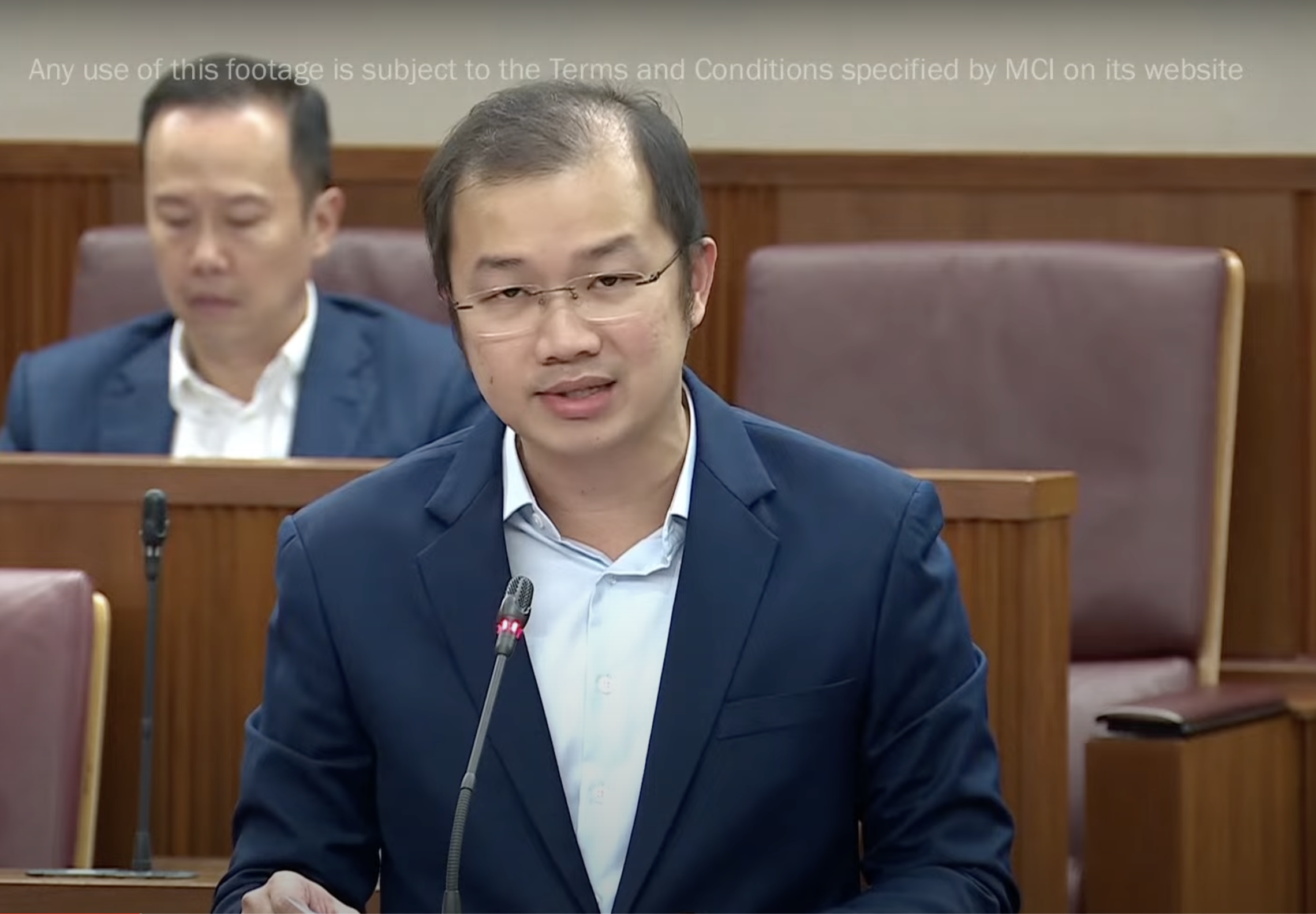 Image via MCI
Image via MCI
Sengkang GRC MP Louis Chua noted the importance of directing resources to those who need them most rather than broad-based handouts, which could lead to allegations of budget measures being part of an “election budget”.
The WP MP cited the Community Development Council (CDC) vouchers, which evolved from helping lower-income Singaporean households to defray the cost of living in 2020 to all Singaporean households being eligible.
“I appreciate the Government providing for one-off goodies and hand-outs to Singaporeans and Singapore companies… However, it is important that we put in place structural levers in our system as opposed to relying on one-off schemes.”
Darryl David
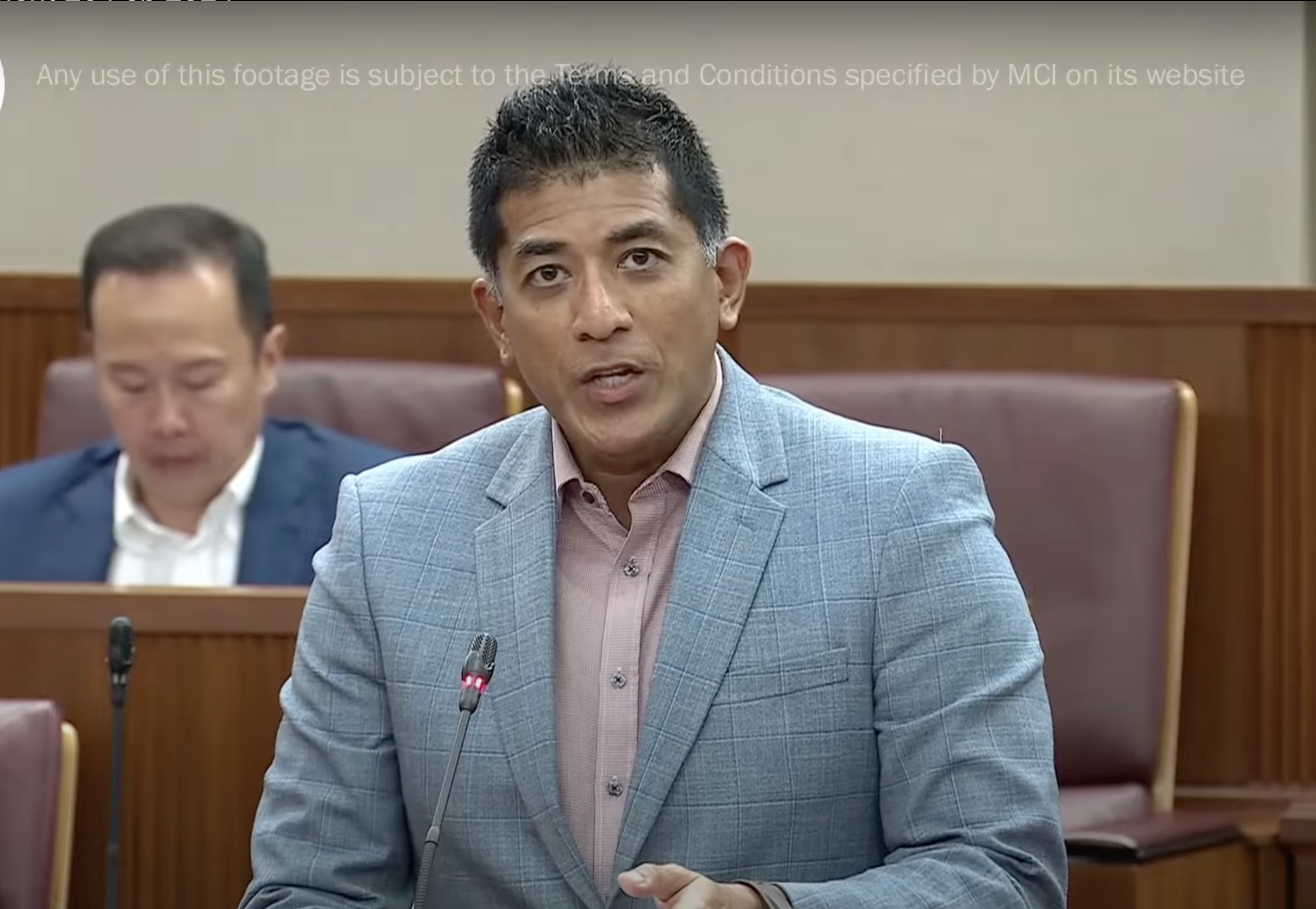 Image via MCI
Image via MCI
Ang Mo Kio GRC MP Darryl David touched on education and learning for various age groups.
He was “heartened” to learn of the budget’s support of middle-aged Singaporeans, such as the S$4,000 SkillsFuture credit and mid-career subsidy.
However, he emphasised that it was important to recognise that adult learners have different learning needs and styles from younger adults or teens. Hence, the diploma programme for mid-career Singaporeans must be designed and taught differently.
He also spoke for the allocation of personal learning devices PLDs to Primary Schools, on top of Secondary schools
Henry Kwek
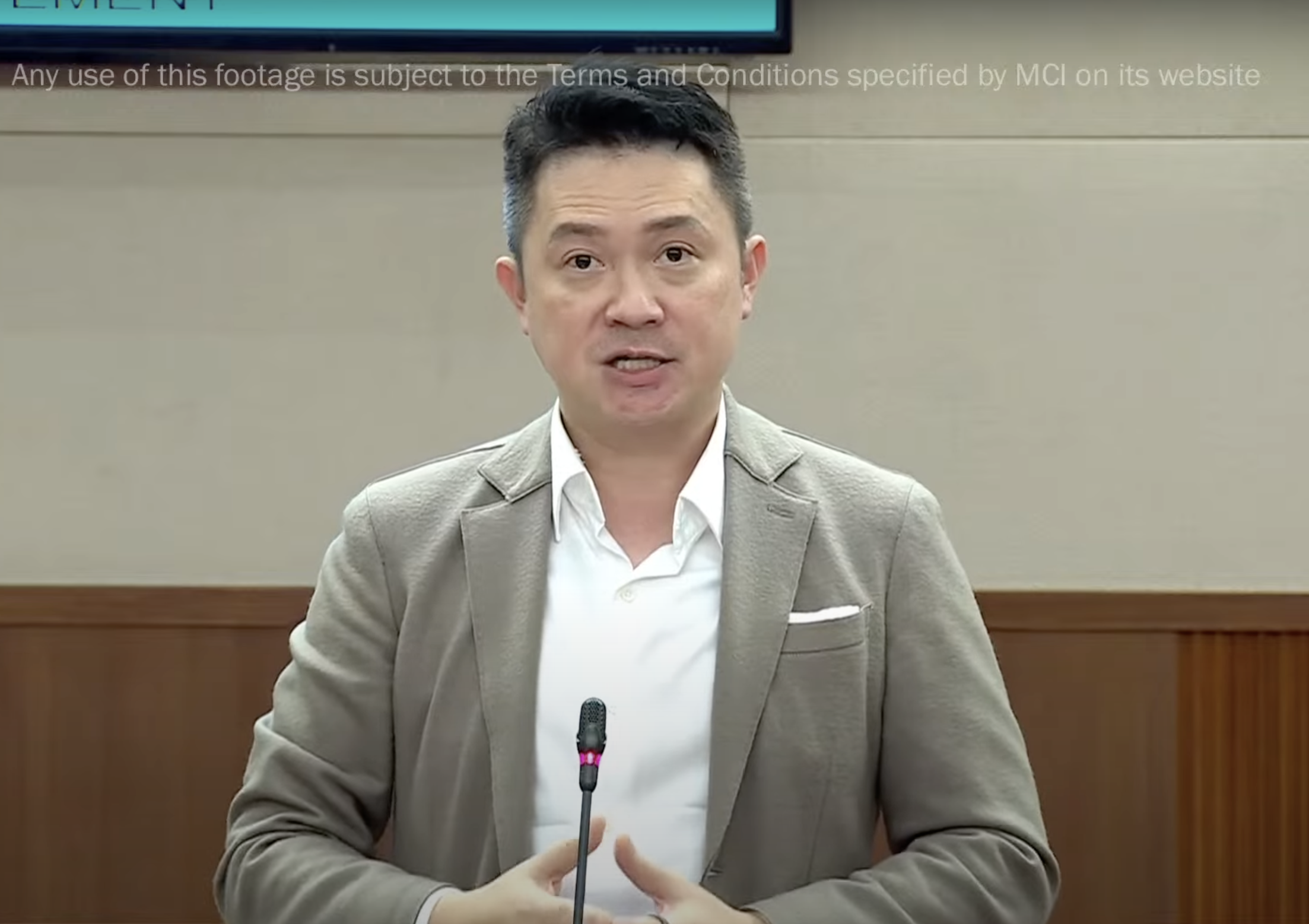 Image via MCI
Image via MCI
Kebun Baru SMC MP Henry Kwek expressed approval of the government’s senior-related measures, such as making home estates more senior-friendly and improving senior CPF contribution rates.
He further suggested the government fund senior-related services in “trusted nodes where seniors gather”, such as places of worship.
He also suggested setting aside spaces in HDB estates for professional caregivers to be sited and respond to seniors’ needs with transportation costs.
Leong Mun Wai
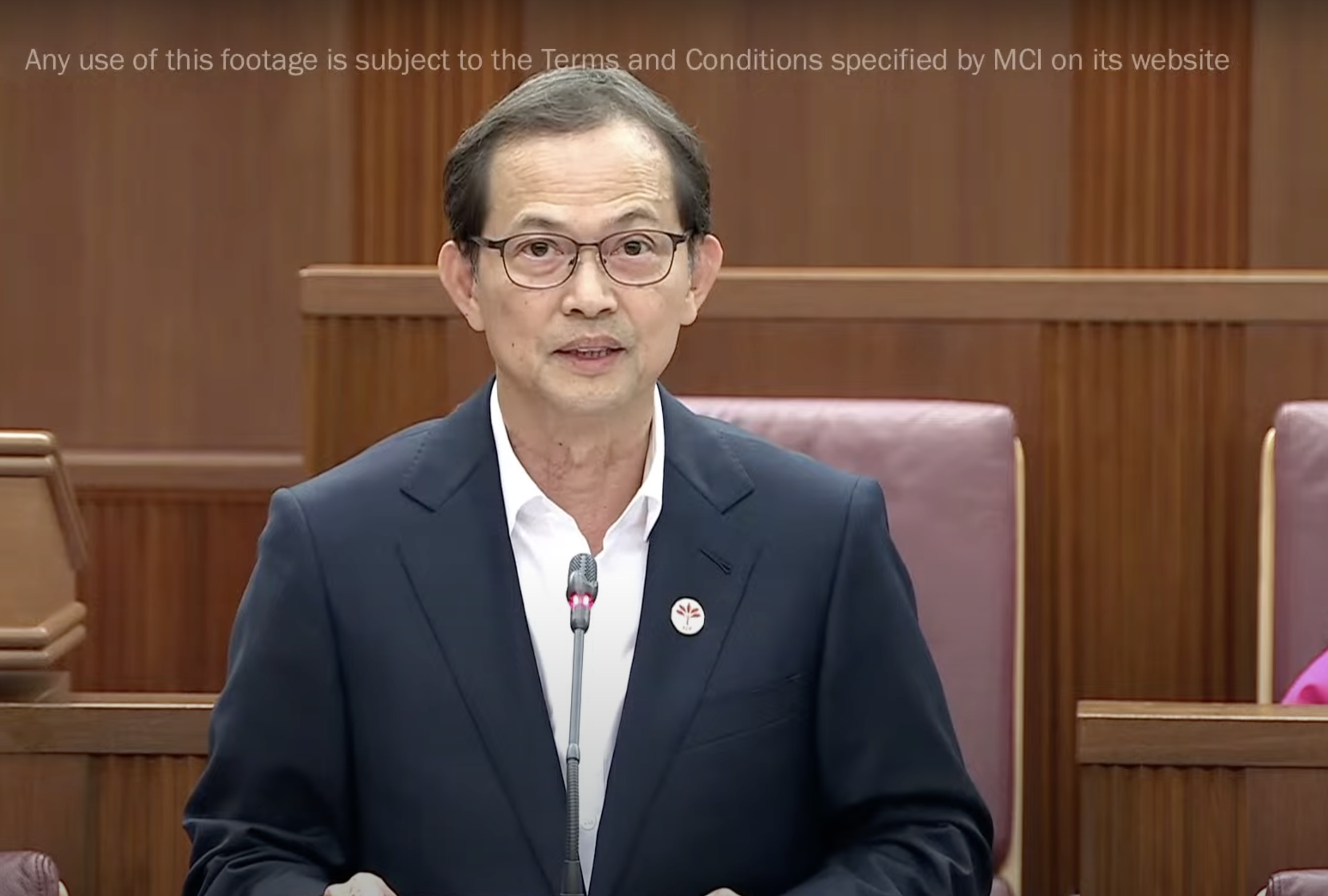 Image via MCI
Image via MCI
PSP NCMP Leong Mun Wai said while he welcomes the S$1.9 billion Assurance Package, the support is “hardly enough” for “cash-strapped Singaporeans to cope with the current cost of living crisis”.
Leong also stated that the government is “relying on a patchwork scheme of vouchers, rebates and top-ups that the lower income Singaporeans are increasingly dependent on, instead of pursuing systemic economic reforms.”
He added that the “handout system” developed by the PAP government “does not empower the individual”.
Leong went on to propose PSP’s own permanent scheme approach in comparison to the government’s “handout approach” to empower Singaporeans and encourage them to strive for higher goals with incentives.
Saktiandi Supaat
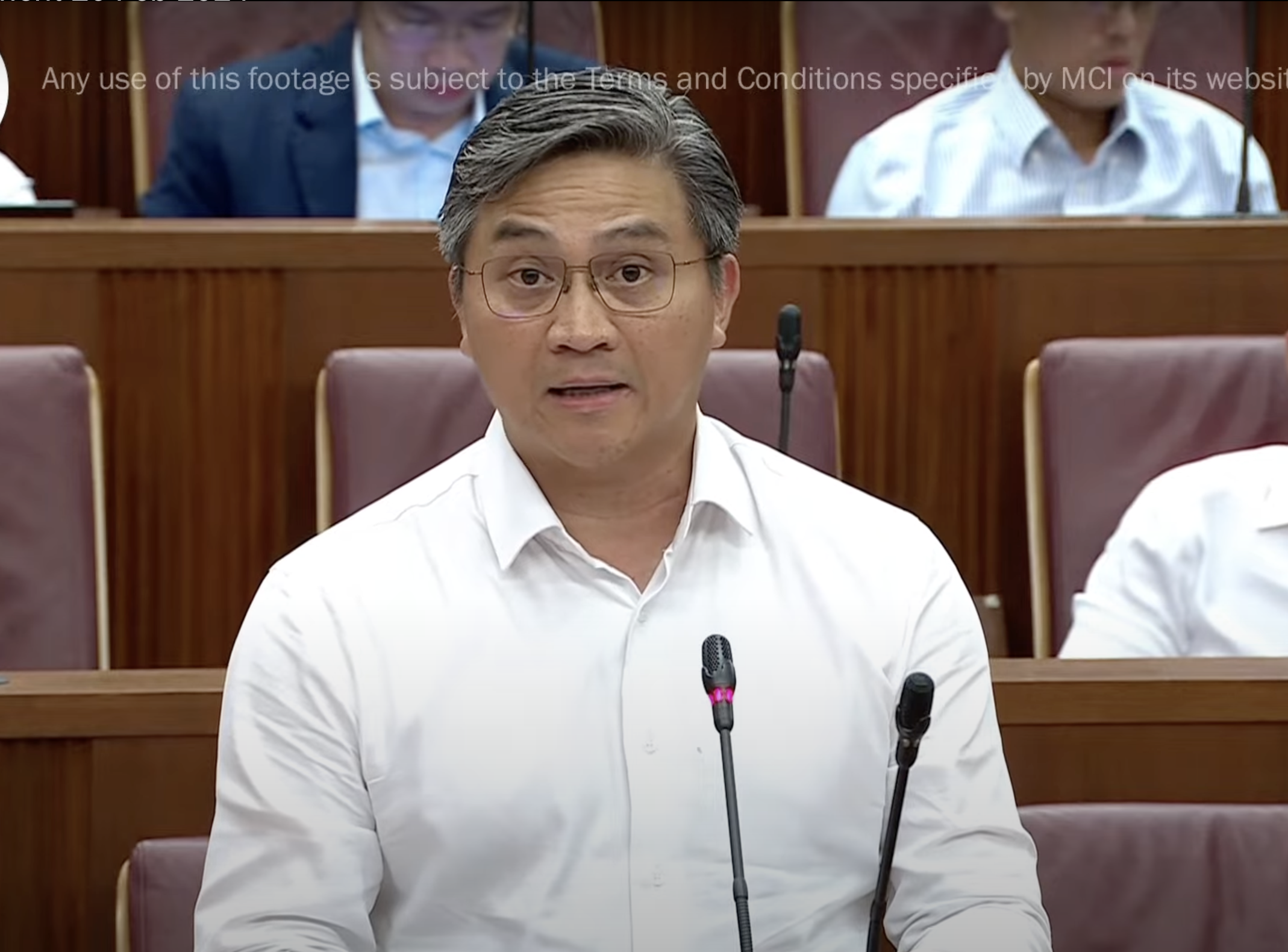 Image via MCI
Image via MCI
Bishan-Toa Payoh GRC MP Saktiandi Supaat voiced his support for the Budget, stating it was “fair and progressive” and continues the same overarching theme to “further improve socioeconomic equality but without stunting economic growth.”
Supaat went on to address three areas: enhancing transport welfare and supporting the middle and upper middle income, protecting vulnerable segments and the two-pronged approach to sustain Singapore’s economic growth.
Shawn Huang
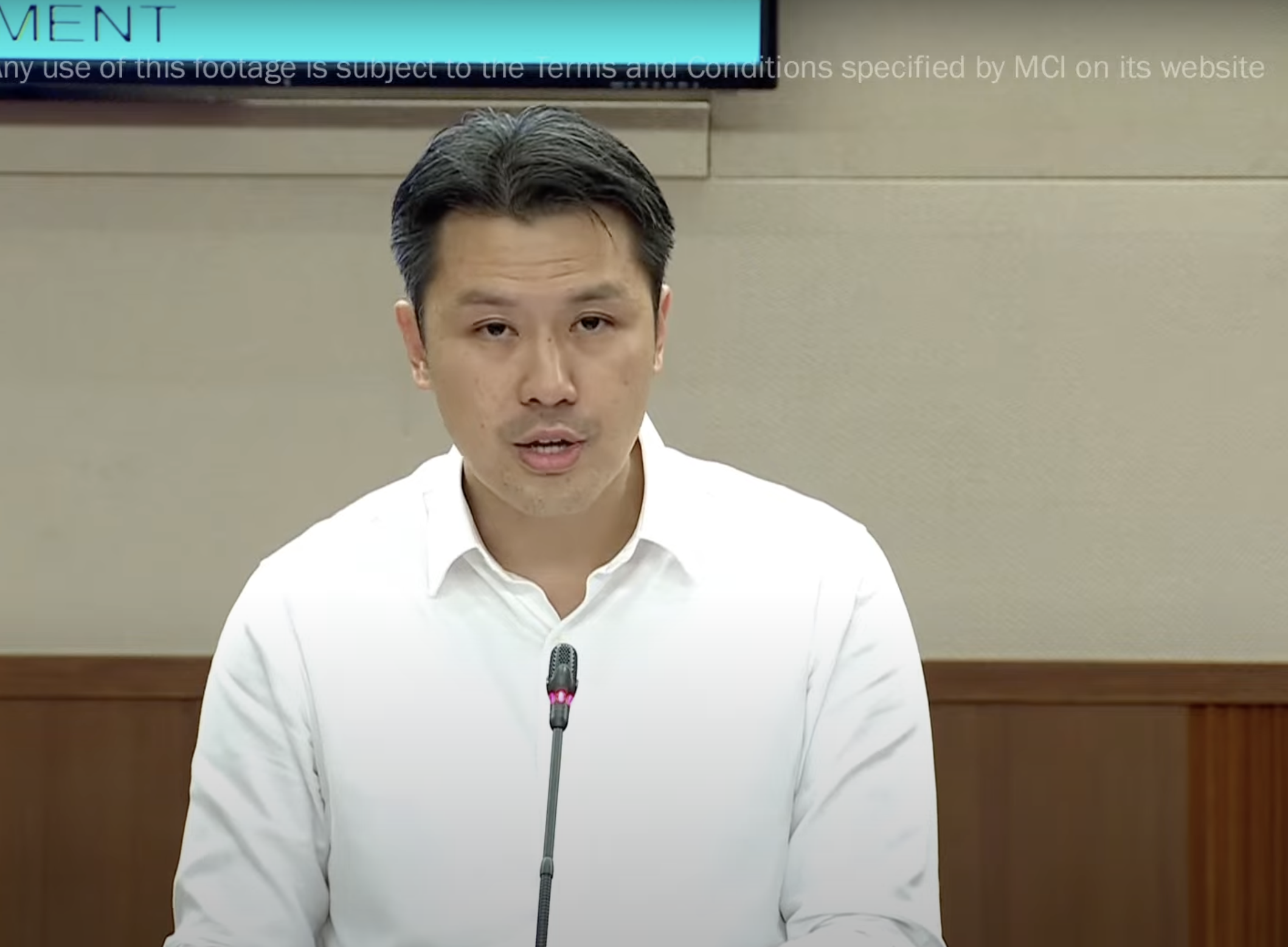 Image via MCI
Image via MCI
“It is worth reflecting on how we plan to save, invest, and allocate our resources for the future,” said Jurong GRC MP Shawn Huang.
He said that our reserves could power our budget because of the prudence and the value of our founding and past generations and urged Singaporeans to think ahead for the next generations.
He went on to highlight factors such as investment climate, legal frameworks, health care, technology and innovation, education, and quality of life as important factors to attract foreign investment.
Tan Wu Meng
 Photo via MCI/YouTube
Photo via MCI/YouTube
Clementi GRC MP Tan Wu Meng stressed the importance of maintaining “social harmony and social togetherness” in the face of rapidly advancing technology.
He said that digitization means people are less likely to meet face-to-face and get fed more of what they had seen and heard before, leading to echo chambers and “sometimes leading to polarisation”.
He said that we should strengthen our social reserves, not just our fiscal reserves, in order to brace against global crises.
Unlike larger, geographically spread countries, he said Singapore is coordinated enough for agencies to work together and maintain “social trust” and cohesiveness” even amidst a wave of AI the deepfakes to come”.
Mark Lee
 Photo via MCI/YouTube
Photo via MCI/YouTube
NMP Mark Lee shared that he was reassured by the Budget’s “prudent and balanced nature” that “thoughtfully avoids excessive depletion of our reserves.”
The 2024 Budget strengthens Singapore’s “ability to secure a resilient and prosperous future for Singaporeans,” he added.
Wan Rizal
 Photo via MCI/YouTube
Photo via MCI/YouTube
Jalan Besar GRC MP Wan Rizal spoke on how the Budget laid the foundation of a “resilient and inclusive society” for focusing on education and life-long learning as “a vehicle for social mobility”.
He noted the Institute of Technical Education (ITE) Progression Award, stating that it marks a significant milestone in Singapore’s education and workforce as it is a “profound statement against the stigma associated with skills-based education.
He said ITE should “no longer be stigmatised as ‘It’s The End’” but “should now rename it ‘It’s The Evolution”.
Dennis Tan
 Photo via MCI/YouTube
Photo via MCI/YouTube
Hougang SMC MP Dennis Tan spoke on the emotional and physical well-being of seniors.
The WP MP elaborated on the former, saying that seniors need to stay active and socially connected, as said that “loneliness can do great harm” to the elderly.
He welcomed the upgrades to residential estates to enable seniors to live more independently and safely
“I look forward to more details from the government, including how these amenities will be made available to residents in their homes and in our common spaces.”
He brought up past announcements by the former Minister of Transport that said there were no plans to expand the current criteria of LTA’s existing cover-linkway programme and said he hoped there is now a rethinking about this approach.
Denise Phua
 Photo via MCI/YouTube
Photo via MCI/YouTube
Jalan Besar GRC MP Denise Phua dubbed the budget a “well-stitched effort to tackle both immediate challenges and longer-term issues affecting our citizens and businesses.”
"While it's not flawless, it does stand as evidence of our government's commitment to listening and understanding ground realities,” she said.
She applauded the government’s “bold and potentially game-changing investment” in young graduates below 30 and mid-career Singaporeans.
However, regarding financial incentives, she said it was unclear how many are eligible for these targeted diploma courses.
It was also “unanswered” whether the potential opportunity costs of not working will deter them and if they will receive adequate career guidance to ensure alignment with their strengths and job market needs.
Yip Hon Weng
 Image via MCI
Image via MCI
Yio Chu Kang SMC MP Yip Hon Weng talked about the daily struggles of Singaporeans, both young and old, who are “feeling the squeeze from rising costs of living across the board”.
Saying that there can be more done to make Singapore “an affordable place to live in”, Yip suggested ensuring affordable and accessible transport for Singaporeans.
Their “costs and waiting times” for private hire vehicles (PHV) are rising, Yip explained, giving peak hour surcharges during the Chinese New Year period as one example.
While he acknowledged that “PHV drivers have families too and will join in the celebrations during this festive season,” this rising costs “also means that there is a certain market failure in the PHV network, which may require some intervention,” Yip said.
He urged the government to “seriously consider separate COE categories for PHVs”.
Cheryl Chan
 Image via MCI
Image via MCI
East Coast GRC MP Cheryl Chan spoke about helping those who need more support in a targeted manner.
Saying that she was “very encouraged by the announcement of the increased support to be provided to families of persons with special needs,” she added that she believes “inclusivity is an important pillar in our social fabric”.
“To be a caregiver for someone with special needs, it's not only a matter of financial cost, it takes a toll on the entire family,” she said.
She highlighted an example of a resident not getting approval for her daughter’s transport concession card due to the “definition of disability and the assessment criteria” and pointed it out as a wider concern of “availability of options” being “determined by what others are willing to provide”.
She asked the government “if there are more we can do as a community to support such individuals”.
Jessica Tan
 Photo via MCI/YouTube
Photo via MCI/YouTube
East Coast GRC MP Jessica Tan talked about better growth, jobs and opportunities, health care and senior care, and property tax adjustments.
Tan said that Singapore needs to focus on growth and quality growth as it is vital to the betterment of Singaporeans’ lives and for business drive.
“Budget 2024 is a comprehensive budget. It lays new foundations and building blocks for us to build our shared future together.”
Gerald Giam
 Photo via MCI/YouTube
Photo via MCI/YouTube
Aljunied GRC MP Gerald Giam touched on boosting productivity through Artificial Intelligence (AI) and robotics in his speech.
The WP MP said that technologies like AI and robotics could provide a path to boost Singapore’s productivity by enhancing the speed, accuracy, and efficiency of various tasks and processes.
Singapore should take advantage of such technologies for not only scientists and businesses but also for general-purpose use by ordinary citizens, he added.
Keith Chua
 Photo via MCI/YouTube
Photo via MCI/YouTube
NMP Keith Chua said reading DPM Wong’s speech made him “very grateful that despite the uncertainties we will encounter, we are well-placed to face these together as one people”.
He urged more Singaporeans to “find time” to read the budget in its totality.
He said that one reason for the limited engagement in the budget details by a broader population is the “historical implicit trust in our government”.
However, in this age of misinformation, Chua continued, it becomes essential that every Singaporean “increasingly appreciates facts and realities”.
“It needs to be seen beyond simple statements, such as government handouts if we are to be part of contributing toward our fair shared future together.”
Gan Thiam Poh
 Photo via MCI/YouTube
Photo via MCI/YouTube
Ang Mo Kio GRC MP Gan Thiam Poh voiced his support of the ministry’s decision to support the employment of older workers through CPF contribution rate increases and SkillsFuture credits.
He also stated that it was “encouraging to note” that about 100,000 units of public and private housing will be completed between 2023 and 2025.
But he questioned if more could be done to shorten the waiting time for flats for young married couples.
He appealed to the government to see if it could consider building a certain number of HDB flats ahead so that some couples can get a unit within a year.
Ang Wei Neng
 Image via MCI
Image via MCI
One topic West Coast GRC MP Ang Wei Neng touched on is CDC vouchers.
While many residents are “pleased” with the additional S$600 CDC voucher for each Singaporean household announced in the Budget 2024, one “setback” is that they are given to each household regardless of family size.
He suggested “doubling the quantum of CDC vouchers for every three registered Singaporeans residing in HDB flats”.
Another suggestion he gave was for “households that do not need the CDC vouchers” to be given a choice to donate the vouchers to “those who need them more”.
Ng Ling Ling
 Image via MCI
Image via MCI
Ang Mo Kio GRC MP Ng Ling Ling said that “more needs to be done to elevate the fear of having children due to the high costs of living in Singapore”.
She expressed hope that the government can “consider placing more importance on implementing comprehensive strategies, such as creating a social support ecosystem for mentoring young couples” in areas like “financial planning” and “financial management”.
She said this is “so as to reduce the financial asset anxieties associated with raising children in Singapore”.
Murali Pillai
 Photo via MCI/YouTube
Photo via MCI/YouTube
Bukit Batok SMC MP Murali Pillai talked about populism and how Singapore needs to develop the “capability to recognise and effectively reject this insidious and seductive form of divisive politics.”
He opened his speech by praising a moment of bilateralism back in 2023 when Leader of the Opposition, Pritam Singh, and DPM Wong agreed that “there is no place for populism in Singapore”.
“Our commitment to reject populism and strong form must therefore carry a commitment to educate all Singaporeans to recognise it when we see it and call it up.”
Ong Hua Han
 Photo via MCI/YouTube
Photo via MCI/YouTube
NMP Ong Hua Han voiced his support for the budget.
He also spoke on the inclusion and the social participation of persons with disabilities in Singapore.
“Inclusion is not just a matter of accessibility, or accommodations is not merely about enabling one to hold on to a job make a living. Not, it’s about thriving.”
Lim Biow Chuan
 Image via MCI
Image via MCI
Mountbatten SMC MP Lim Biow Chuan said that many people “viewed the budget statement as simply an announcement of the ‘goodies’, which the government dishes out for its citizens”
Expressing his hope that people can “change that mindset”, Lim said that the “financial policy of the government” must not just be to help citizens with “current issues” but also to “provide a roadmap for Singapore's future”.
“If the government does not plan for the future, then we are merely putting out fires every time a crisis happens,” he said.
Poh Li San
 Photo via MCI/YouTube
Photo via MCI/YouTube
Sembawang GRC MP Poh Li San voiced her support for the 2024 budget. Specifically the S$3.5 billion allocated to Age Well SG to assist seniors.
Poh commended the government's effort to provide help to those with dementia but hoped the Ministry of Health would consider more for the needs of caregivers.
She also suggested synchronising all medical and social services within their service boundary to ensure long-term medical community partnership as it would "exponentially improve the community social health integration" and provide for "a seamless integrated social health system".
The debate will continue on Feb. 27, 2024.
Top photos via MCI/YouTube
If you like what you read, follow us on Facebook, Instagram, Twitter and Telegram to get the latest updates.



